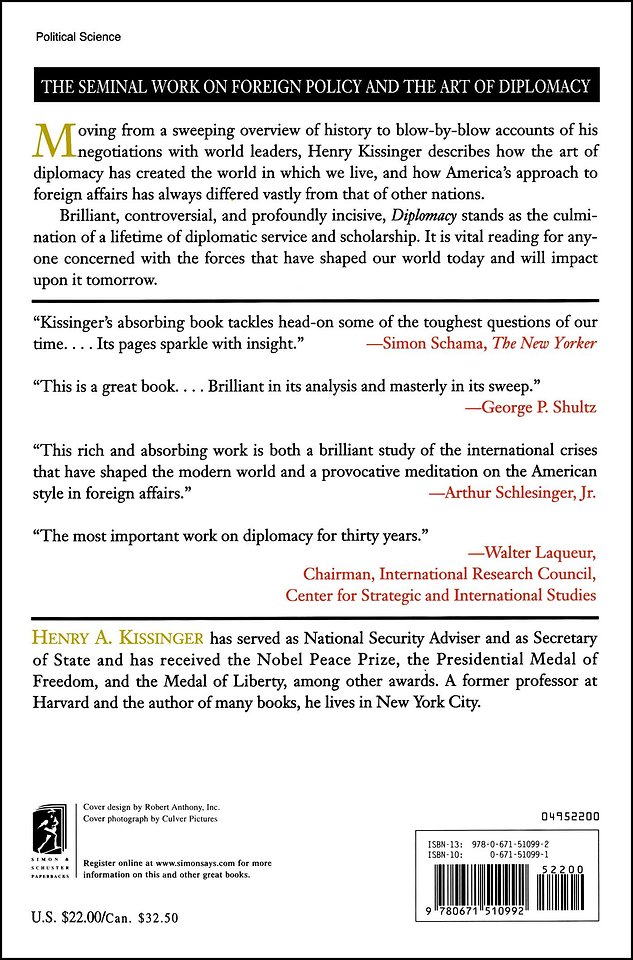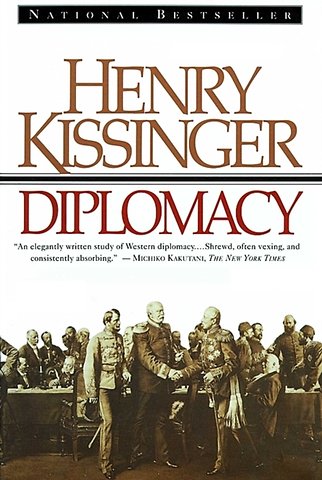<BR><B>CONTENTS</B><BR><BR>1 The New World Order<BR><BR>2 The Hinge: Theodore Roosevelt or Woodrow Wilson<BR><BR>3 From Universality to Equilibrium: Richelieu, William of Orange, and Pitt<BR><BR>4 The Concert of Europe: Great Britain, Austria, and Russia<BR><BR>5 Two Revolutionaries: Napoleon III and Bismarck<BR><BR>6 <I>Realpolitik</I> Turns on Itself<BR><BR>7 A Political Doomsday Machine: European Diplomacy Before the First World War<BR><BR>8 Into the Vortex: The Military Doomsday Machine<BR><BR>9 The New Face of Diplomacy: Wilson and the Treaty of Versailles<BR><BR>10 The Dilemmas of the Victors<BR><BR>11 Stresemann and the Re-emergence of the Vanquished<BR><BR>12 The End of Illusion: Hitler and the Destruction of Versailles<BR><BR>13 Stalin's Bazaar<BR><BR>14 The Nazi-Soviet Pact<BR><BR>15 America Re-enters the Arena: Franklin Delano Roosevelt<BR><BR>16 Three Approaches to Peace: Roosevelt, Stalin, and Churchill in World War II<BR><BR>17 The Beginning of the Cold War<BR><BR>18 The Success and the Pain of Containment<BR><BR>19 The Dilemma of Containment: The Korean War<BR><BR>20 Negotiating with the Communists: Adenauer, Churchill, and Eisenhower<BR><BR>21 Leapfrogging Containment: The Suez Crisis<BR><BR>22 Hungary: Upheaval in the Empire<BR><BR>23 Khrushchev's Ultimatum: The Berlin Crisis 1958-63<BR><BR>24 Concepts of Western Unity: Macmillan, de Gaulle, Eisenhower, and Kennedy<BR><BR>25 Vietnam: Entry into the Morass; Truman and Eisenhower<BR><BR>26 Vietnam: On the Road to Despair; Kennedy and Johnson<BR><BR>27 Vietnam: The Extrication; Nixon<BR><BR>28 Foreign Policy as Geopolitics: Nixon's Triangular Diplomacy<BR><BR>29 Detente and Its Discontents<BR><BR>30 The End of the Cold War: Reagan and Gorbachev<BR><BR>31 The New World Order Reconsidered<BR><BR>NOTES<BR><BR>ACKNOWLEDGMENTS<BR><BR>INDEX



